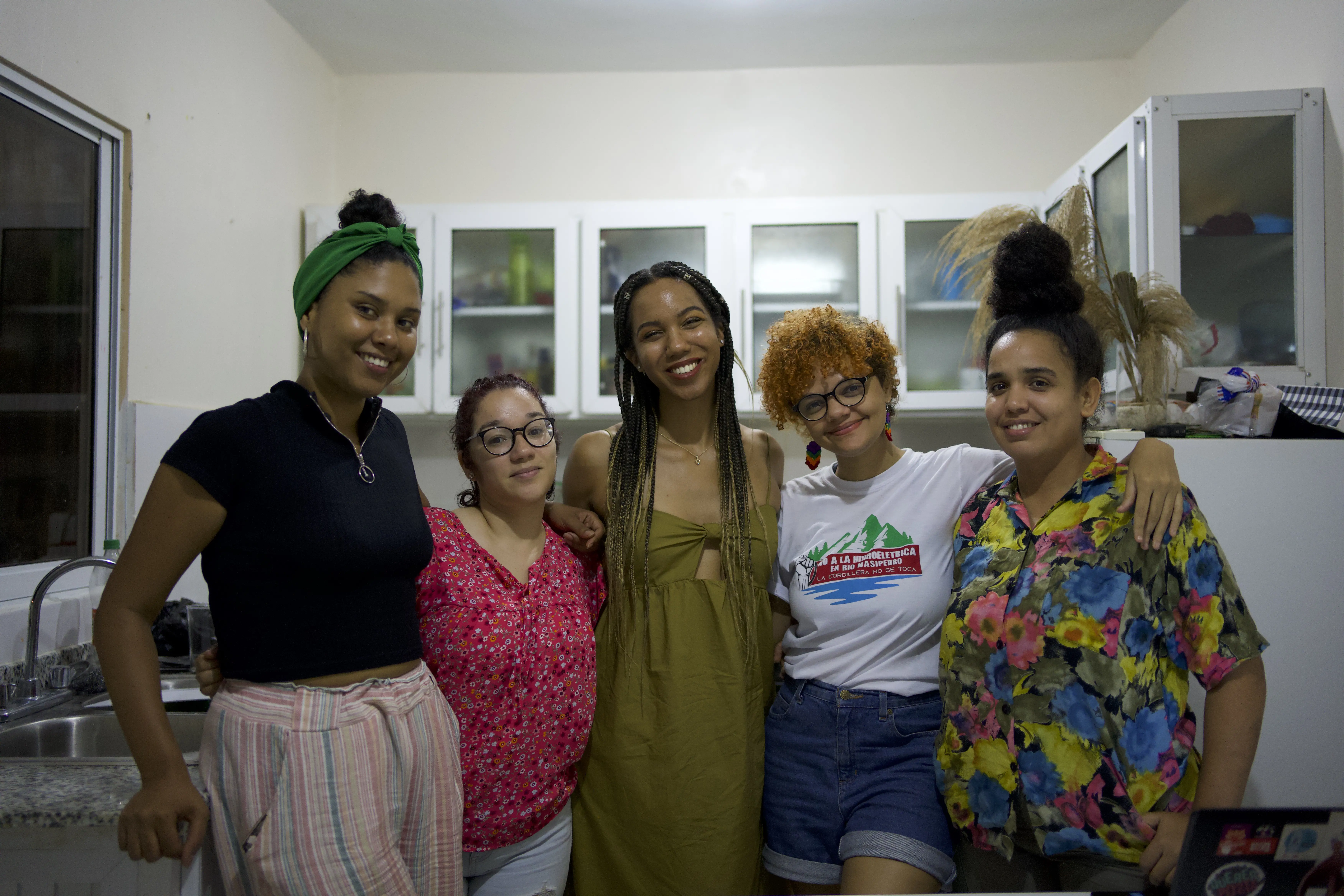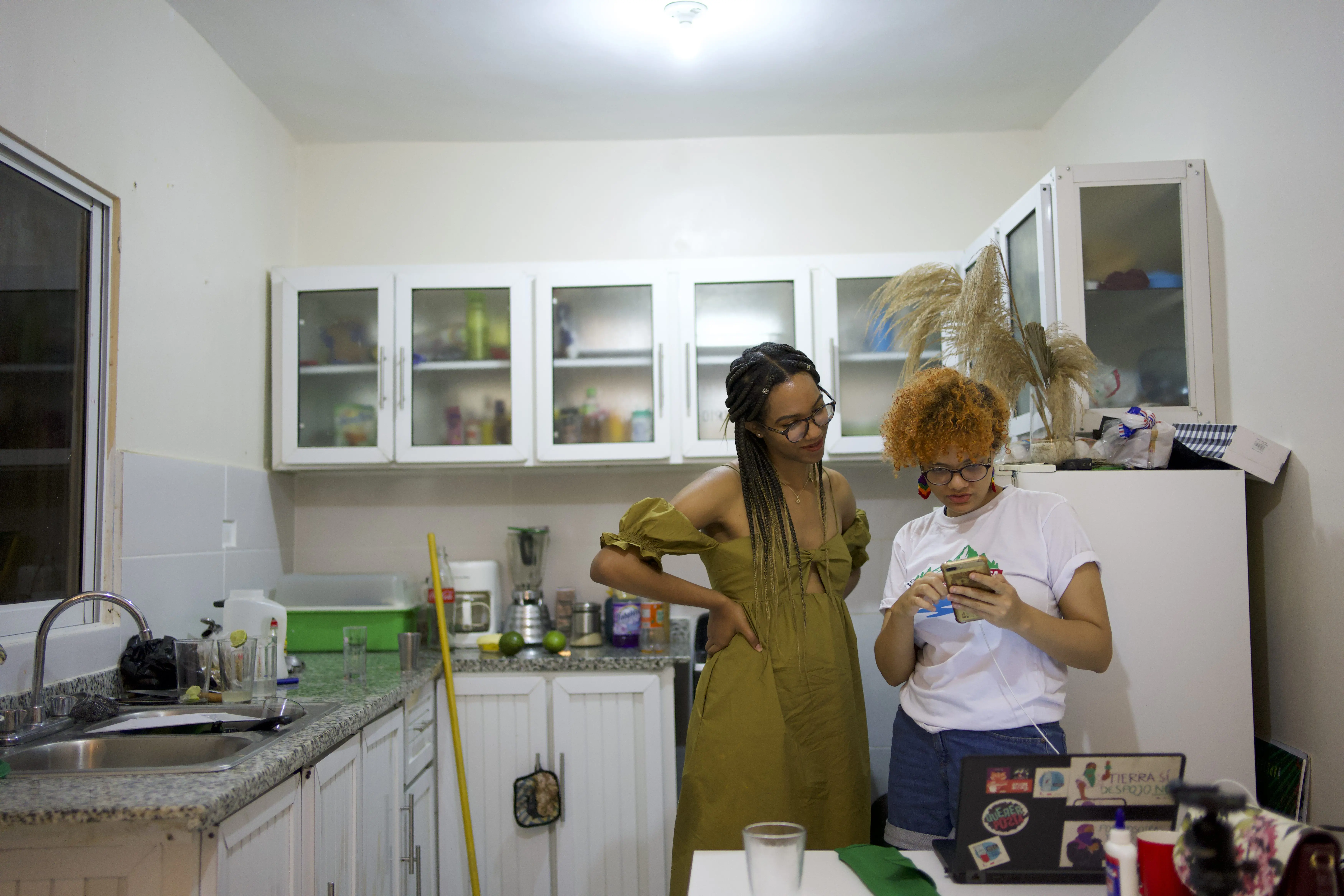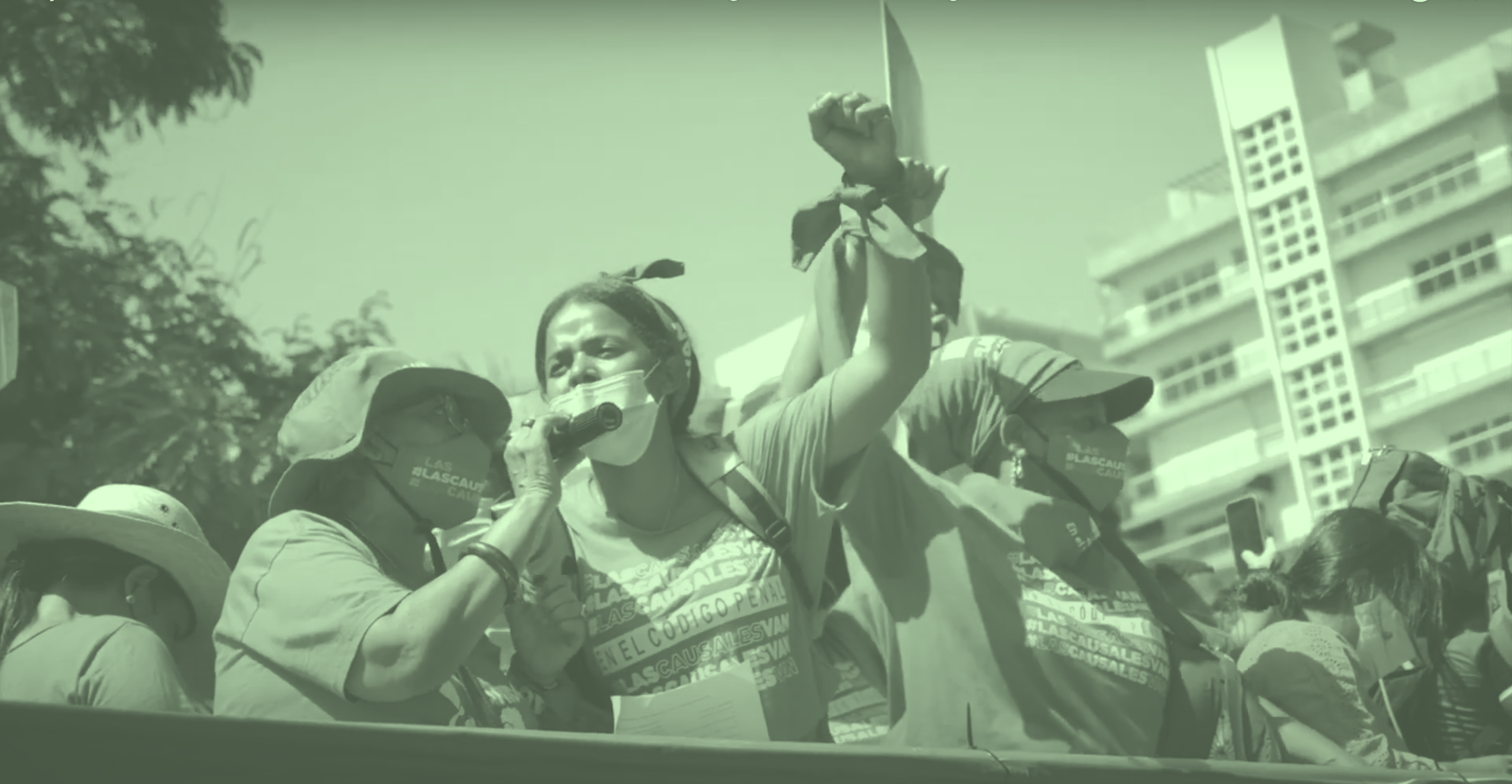There’s a city-wide blackout. No street lights, no shop lights—just flashlights from people’s phones. This is normal, my interviewee Alicia says, and the bodega owner nods from behind her. Alicia bids her goodbye and we head to Parque Duarte, the place everyone describes as “the it spot” for nightlife in Santo Domingo. She orders some wine.
“This country is a mess,” she laughs, and serves herself a glass. I can only see her cheekbones and her eyes, her back illuminated by the lights on passing cars. We restart our interview, this time in complete darkness.
She is my last in-person interview in the Dominican Republic, and it’s fitting that it’s during a blackout.
We talk about light topics at first, like the places I’ve seen while I’m here, how our weeks have been, and our journalism careers. But quickly, we shift back into the seriousness of it all. We talk about the mistreatment of Black women in the country, racism towards Haitians, the fight for reproductive rights in the Dominican Republic, and ongoing issues for women who live in the outskirts, the countryside—women whose realities are far different than the ones of women in Santo Domingo.
I take it all in and process. When I first mapped out this story, I had a few things in mind. I wanted to cover the aftermath of the 2021 protests for Las Tres Causales—the three exceptions, which would allow women and birthgivers access to an abortion in cases of rape, incest, or if the person’s health is at risk. I wanted to capture the the ever-shifting culture towards reproductive rights and abortion, and chart how Las Tres Causales would affect needed institutional change, and how it would benefit the lives of women and birthgivers in the Dominican Republic.
That all shifted after my second day of interviews, when we drove to Bonao, a barrio about a 3 hour drive from where I was staying in Santo Domingo, the country’s capital.

I sat with four women—leaders and members of Aquelarre, a coalition likely considered one of the more radical Afro-feminist and grassroots groups in the country—on their concrete roof on a Thursday afternoon, sipping a mango drink they’d squeezed into my cup. We spoke for almost five hours. I asked them about sex education, teenage pregnancy—and other things that are regarded as engines of poverty. We talked about their lives, the difficulties they’ve faced, their involvement in the 2021 protests.
The more they spoke, the more I discovered the large disconnect between the mainstream feminist movements and the reality of rural, low-income sectors, of Black women and birthgivers, and under-priviledged communities in the country. I also realized women and birthgivers in rural areas often don’t benefit from institutional change, and that while establishing laws is still important, cultural change must precede it.
This meant their fight for abortion would be a fight for full reproductive freedom: a social decriminalization of abortion, unlimited access to an abortion and reproductive care, and comprehensive sex education. For many in Santo Domingo, fighting for Las Tres Causales is a head start to unlimited abortion access, but Afro-feminists believe the movement must extend beyond this.

“We see many women taking the mic, talking about how they’re leading the fight for poor women,” Esther Giron, co-founder of Aquelarre, said. “But where are the poor women? What place do rural, working-class women have in the construction of this strategy? They say 'we’re here to speak for those who do not have a voice,' but perhaps it’s not that they don’t have a voice, it’s that the feminist movement isn’t listening to them.”
Almost instantly, I knew my story had shifted. To adequately report this movement, I needed to cast my Westernized mindset, turn the spotlight on grassroots movements instead of institutions, and identify gaps and cultural shifts through their perspectives. These were the movements I needed to spotlight, the type of Dominican Black feminism more people need to know exists, and I needed to let women like Esther, women like Alicia, tell this story through their eyes.









